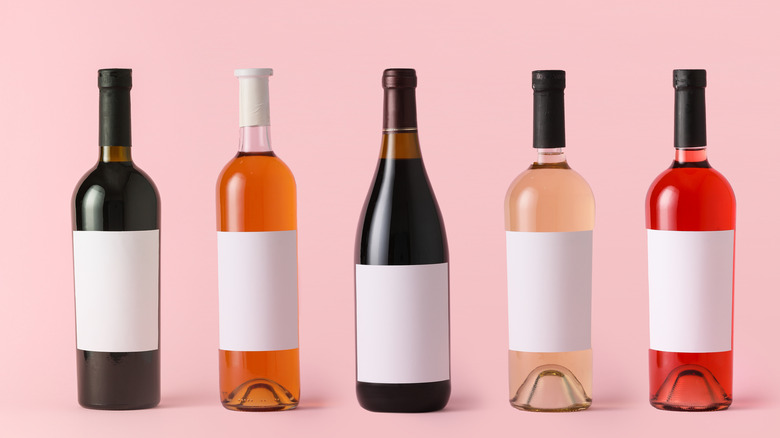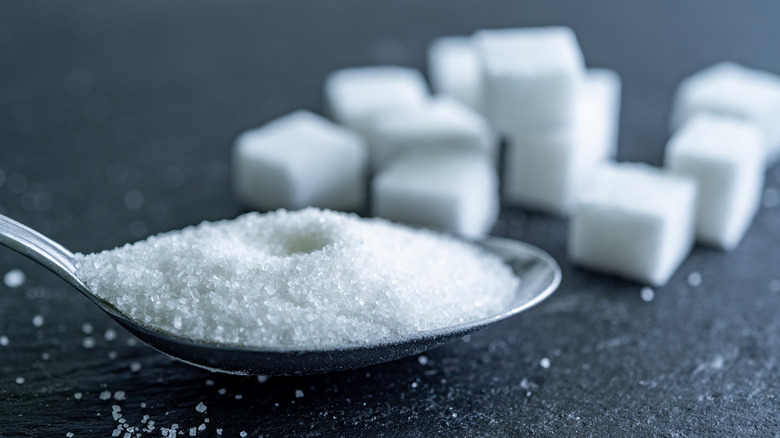The Unexpected Reason Health Experts Say You Should Drink Less Wine
If you're a wine drinker, you've probably taken comfort in the fact that over the past few years scientists and health experts have discovered a plethora of health benefits conferred by the fermented grape juice. Many have even gone so far as to recommend drinking a glass per day, citing pluses including antioxidants that may help protect cell health, boosting "good" (or LDL) cholesterol, and lessening the risk of heart disease, according to Verywell Fit. For those who enjoy a nice Chardonnay or Tempranillo, such news goes down as easy as, well, a good glass of wine.
Then again, even the same experts who have given the thumbs-up to moderate daily wine consumption have warned that there are possible downsides to drinking wine, including interaction with medications, the possible blocking of folate absorption in the body, and — of course — the risks that come with overindulgence, such as increased incidences of violence or traffic accidents. And now, a group of health organizations based in the U.K. is warning against too much wine for another reason that might surprise you.
Winemakers are not required to list nutritional information
Anyone who shops for groceries on a regular basis is likely more than familiar with nutrition labeling, which tells us how many calories, grams of fat, and other nutritional content information about the items we're thinking of buying. While different countries around the world take varying approaches to nutrition labeling depending on local laws, according to Saltwell, one beverage has consistently taken the heat for its lack of transparency: wine. According to Vox, wine producers (along with beer and alcohol makers) aren't subject to the same laws that require food and non-alcoholic drink companies to use nutrition labeling. After years of pressure from consumer advocates, in 2013, the Alcohol and Tobacco Tax and Trade Bureau ruled that it was optional for winemakers to share nutrition information on the label — but unsurprisingly, the vast majority of them choose not to do so.
This is likely because, like other alcoholic drinks, wine tends to be very high in calories. With more and more people interested in eating healthy, what winemaker would want to reveal a high calorie content?
Some wines have a very high sugar content
And that's just the bone that the U.K.'s Alcohol Health Alliance (AHA) has to pick with wine, reports the Guardian, saying that it's chock full of sugar and, therefore, calories. But since most wine isn't labeled, people don't know what they're consuming.
"Alcohol's current exemption from food and drink labeling rules is absurd," professor Sir Ian Gilmore, the AHA's chair, told the Guardian. "Shoppers who buy milk or orange juice have sugar content and nutritional information right at their fingertips. But this information is not required when it comes to alcohol."
The AHA, which contains members from more than 60 health organizations, is warning that many of the common red, rosé, and white wines enjoyed by consumers are incredibly high in sugar, and that moderate consumption is advised. Drinkers can exceed their daily suggested sugar intake with just two glasses of wine, in some cases taking in more calories than are found in a McDonald's hamburger. The organization is calling, once again, for more transparent nutrition information to be listed on wine labels. "The alcohol industry have dragged their feet for long enough," Alison Douglas, the chief executive of Alcohol Focus Scotland, told the Guardian. "Unless labeling requirements are set out in law, we will continue to be kept in the dark about what is in our drinks."


